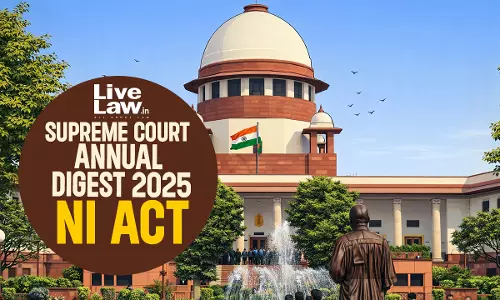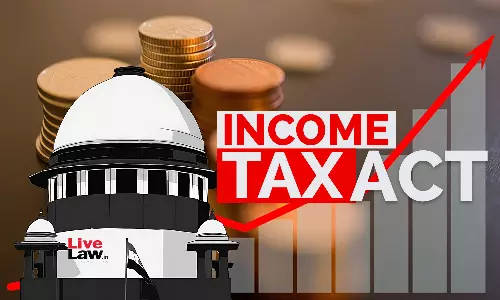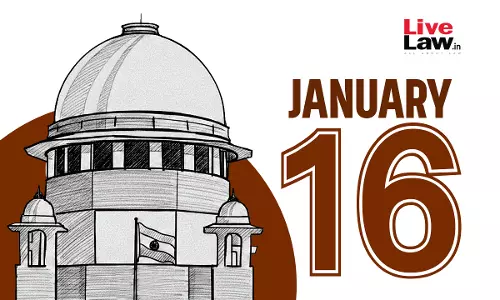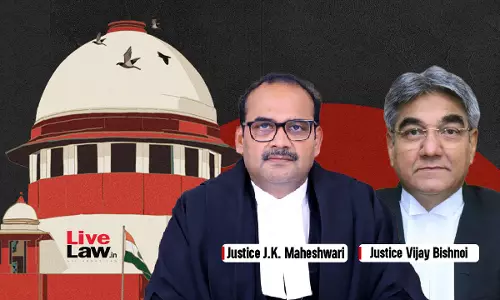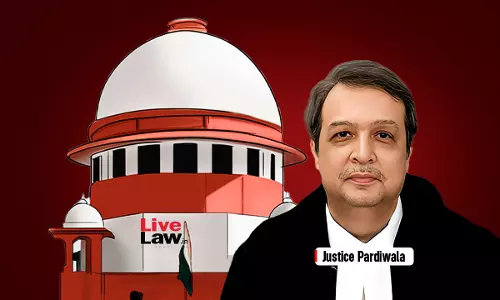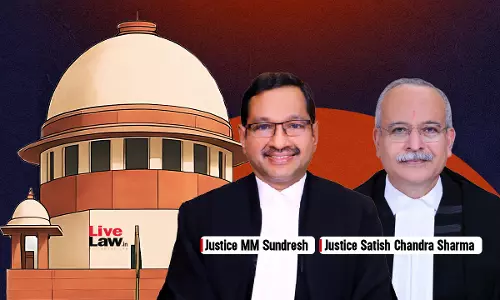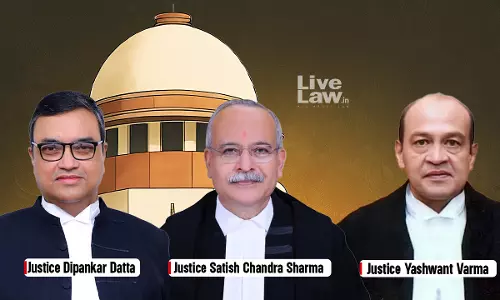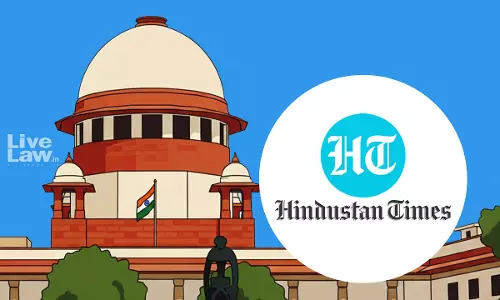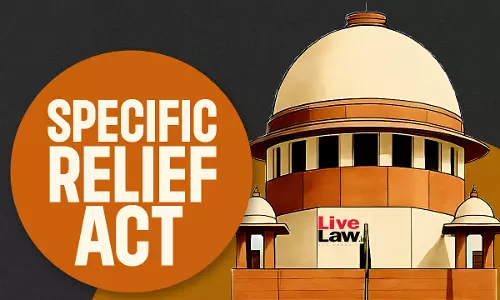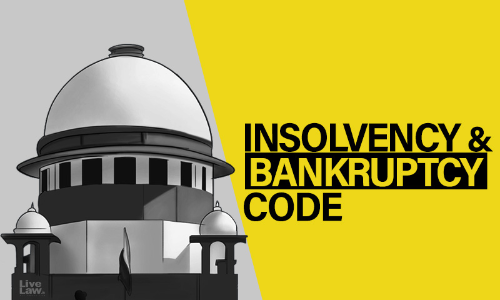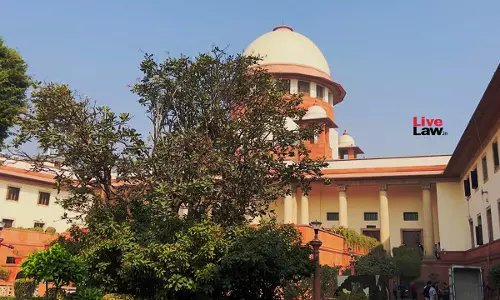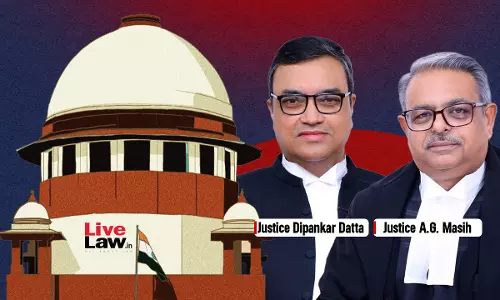Supreme court
Supreme Court Annual Digest 2025: Negotiable Instruments Act, 1881
Distinction between 'delivery' and 'presentation' illustrated - Supreme Court distinguished delivery (Section 46 NI Act) from presentment (Section 64 NI Act) - Held that delivery involves the drawer handing the cheque to the payee, and, in case of account-payee cheques, the payee delivering it to his own bank - This stage is covered by Section 142(2)(a) - Presentment is the act...
In Tiger Global Case, Supreme Court Explains Distinction Between 'Tax Planning' & 'Tax Evasion'
The Supreme Court has held that while an assessee is permitted in law to plan transactions to avoid tax, such planning must strictly conform to the framework of the Income Tax Act, the applicable rules, and notifications. The Court said that once a transaction structure is found to be illegal, sham, or lacking commercial substance, it ceases to be permissible tax avoidance and...
Supreme Court Daily Round-Up : January 16, 2026
Links to today's reports :Supreme Court Rejects Justice Yashwant Varma's Challenge To Lok Sabha Speaker's Formation Of Inquiry Committee In Impeachment MotionSupreme Court Flags Prolonged Service Litigations Blocking Appointments, Calls For Judicial IntrospectionJustice SC Sharma Reveals He Was Targeted By Fake Traffic Challan SMS, Flags Cyber Fraud MenaceSupreme Court Stays Calcutta HC...
States Cannot Prescribe Qualifications Beyond Those Laid Down In Union Law: Supreme Court
When a field prescribing a qualification for a public post is occupied by the Union, then it is impermissible for the States to impose additional qualifications, observed the Supreme Court. A bench of Justices JK Maheshwari and Vijay Bishnoi heard the batch of appeals concerning the challenge to the power of the State Government to prescribe the essential qualifications for the position of...
'Tax Sovereignty Must Not Be Compromised' : Supreme Court Suggests Safeguards While Entering Into International Tax Treaties
In his concurring opinion in the Tiger Global–Flipkart tax dispute, Justice JB Pardiwala stressed that tax sovereignty is an essential facet of India's economic independence and warned against ceding taxing rights through international treaties or external pressures.Justice Pardiwala fully agreed with the reasoning and conclusions reached by Justice R Mahadevan, who authored the main...
Supreme Court Criticises Rajya Sabha Secretary General For Commenting On Merits Of Impeachment Motion Against Justice Varma
The Supreme Court today(January 16) criticised the procedure adopted by the Secretary General of Rajya Sabha, which became the basis on which the Deputy Chairman of Rajya Sabha rejected the impeachment motion against Justice Yashwant Varma of the Allahabad High Court. Statedly, the Secretary General made a substantive assessment of the notice of motion, whereas the law only contemplates...
Contract To Hire Global Speakers For Media Summit Not Subject To Service Tax As 'Event Management' : Supreme Court
In a major relief for the media and event organizers, the Supreme Court on Friday (January 16) held that the fees paid to high-profile speakers through international booking agencies do not attract Service Tax under the category of "Event Management Service". A bench of Justices JB Pardiwala and KV Viswanathan set aside the Customs, Excise and Service Tax Appellate Tribunal (CESTAT) order...
Residents Welfare Association Or Homebuyers' Society Can't Intervene In Insolvency Petition Against Builder : Supreme Court
The Supreme Court on Thursday (January 15) held that Resident Welfare Associations (RWAs) representing homebuyers cannot intervene in the Corporate Insolvency Resolution Process unless the RWA itself has disbursed funds or is directly a party to the financial transaction, as only then can it claim the status of a financial creditor. “A society or Resident Welfare Association, not being...
Supreme Court Signals Intention To Monitor Protection Of Neglected Heritage Sites In Delhi
The Supreme Court recently expressed its intention to monitor the maintenance and upkeep of Delhi's heritage archaeological sites, which have suffered neglect from the authorities.The Court was hearing a matter concerning the illegal encroachment on the Lodhi-era Shaikh Ali 'Gumti', a 500-year-old tomb of archaeological importance. The Gumti was illegally occupied by the Defence Colony...



